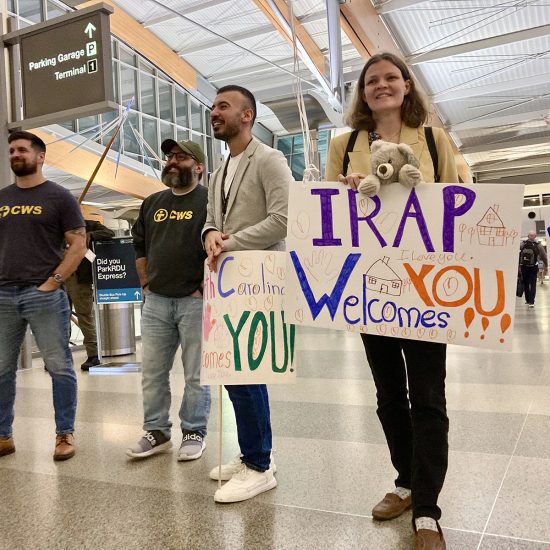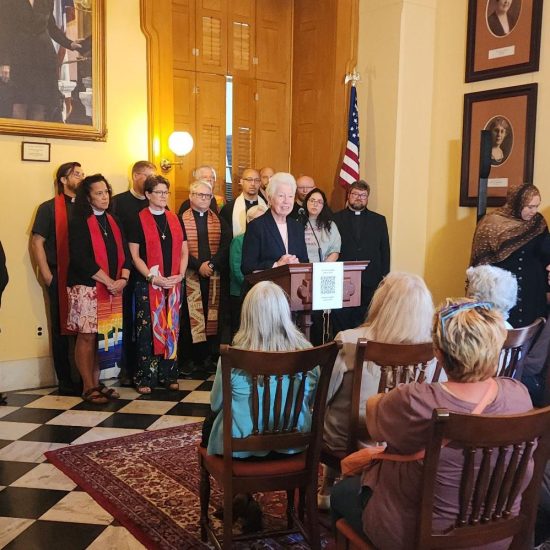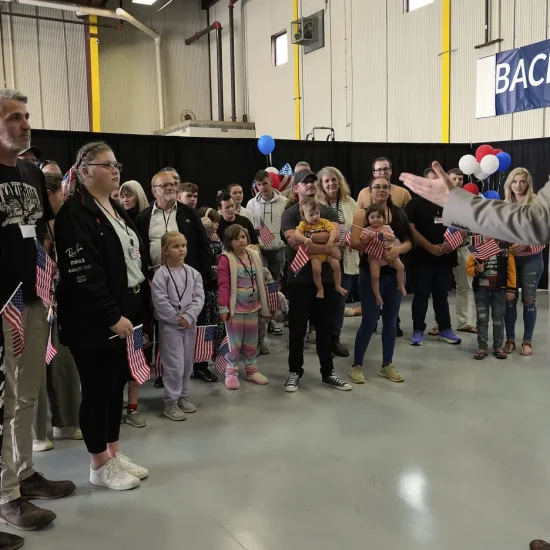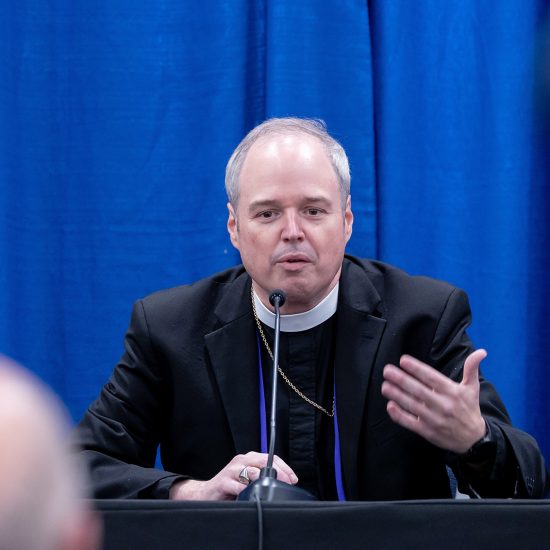Today’s refugee camps are not so different from the ghettoes of Europe during World War II. One could argue — accurately — that Jews and others were herded into those urban ghettoes with meager belongings. Day-to-day resources were in tight supply and limited.

Bill Webb
|
Refugee camps in the Middle East, Africa, Asia and elsewhere today are what the name implies — places of refuge or rescue. These are places that people who are running from political or military terror run to when, for the safety of themselves and their families, they must leave home.
Refugee cities are anything but urban in our day. The common ingredient is space — limited personal space, to be sure — but areas than can accommodate perhaps 100,000 or more people and the needed food, sanitation and living accommodations to get by temporarily.
Temporary is a hard word to define in days, weeks, months and years. It varies depending upon the situation back home where the heart is. It varies with the ability of nations and benevolent causes to continue to provide space and life resources in an away-from-home setting.
Some would say that temporary also depends upon how long a people — even a person — can live physically so far away from heart and home.
Refugee camps vary in terms of their comfort and ability to provide services. Some enable educational experiences for refugee children. Some, recreation. Others provide a long and usually unwelcome break from the pursuit of an education.
The problem with the best refuge camps is that even they are never intended to become “home” on a permanent basis. At best, they are rescue stations meant to keep fellow human beings alive and, if possible, healthy. Refugee camp volunteers seek to reinforce the human spirit that they believe is a right of every person. It must be hard for a refugee to maintain his or her sense of dignity when reduced in essence to a beggar.
However, it seems like the world in which we all live is not planning to get out of the refugee-creating — and, therefore, the refugee camp-creating — business any time soon.
Whether on political grounds, economic grounds or even religious grounds, governments and tribes seek the upper hand. People seek less to extend respect to others who are different than to demand it for themselves as those who are somehow superior. Perhaps most of us have never stepped into a refugee camp. I haven’t.
Perhaps most of us have never sat across the table and talked with a refugee.
Such an experience might disturb our theology. It must have been easy for the brother in Scripture who was observed by Jesus praying on the public street, “Thank God I am not like that sinner over there.” Jesus reminded us that even though the pray-er did not think of himself as a sinner, he really was the sinner in this setting.
Refugees are people who do not necessarily know where they will next lay their heads for a night’s sleep. In that sense, the Bible identified Jesus as something of a refugee. There were a lot of things about his day-to-day life that would seem to many of us too precarious, too uncertain and perhaps unbearable.
The story about Syrian refugees in our current print issue is one that I find troubling.
Humanity creates families without fathers, or without mothers, and remnants of complete families become refugees. We have the pictures to prove it.
Imagine that a generation later, a former refugee family is going through its photo album.
“Look, here are some shots from those years when we were refugees in Lebanon, or was that Jordan, during the civil war back home. Here’s little ___. She was born in the camp, and we hardly knew how we would care for an infant in that setting. And here’s ___. We had no soccer uniforms or soccer balls there so he would fill a plastic bag with paper and use it for a ball. He was so creative, and so cute. ___ was growing up to be such a beautiful young lady back then, but you would never know it by looking at her clothes or her grooming. She had to learn to do without.”
Some who tend to the needs of refugees in today’s camps — whether as paid workers or volunteers — may find themselves entertaining angels unaware of who they are.
Many faith groups are providing resources these days to meet the needs of displaced peoples who left their hearts behind even as they left behind their homes. First, we need to pray and use our influence to get them home. We do that by putting our own faith and influence in action in whatever ways we are spiritually led to do so. Second, we need to look into the faces of refugees through photos, videos or in person. We might find someone who resembles our own mother or sibling or daughter or grandson. God may be reminding us that we are all his children by creation and thus worthy of help.
Surely God has an affinity for homeless refugees. So must we.
Bill Webb is editor of Word&Way.






